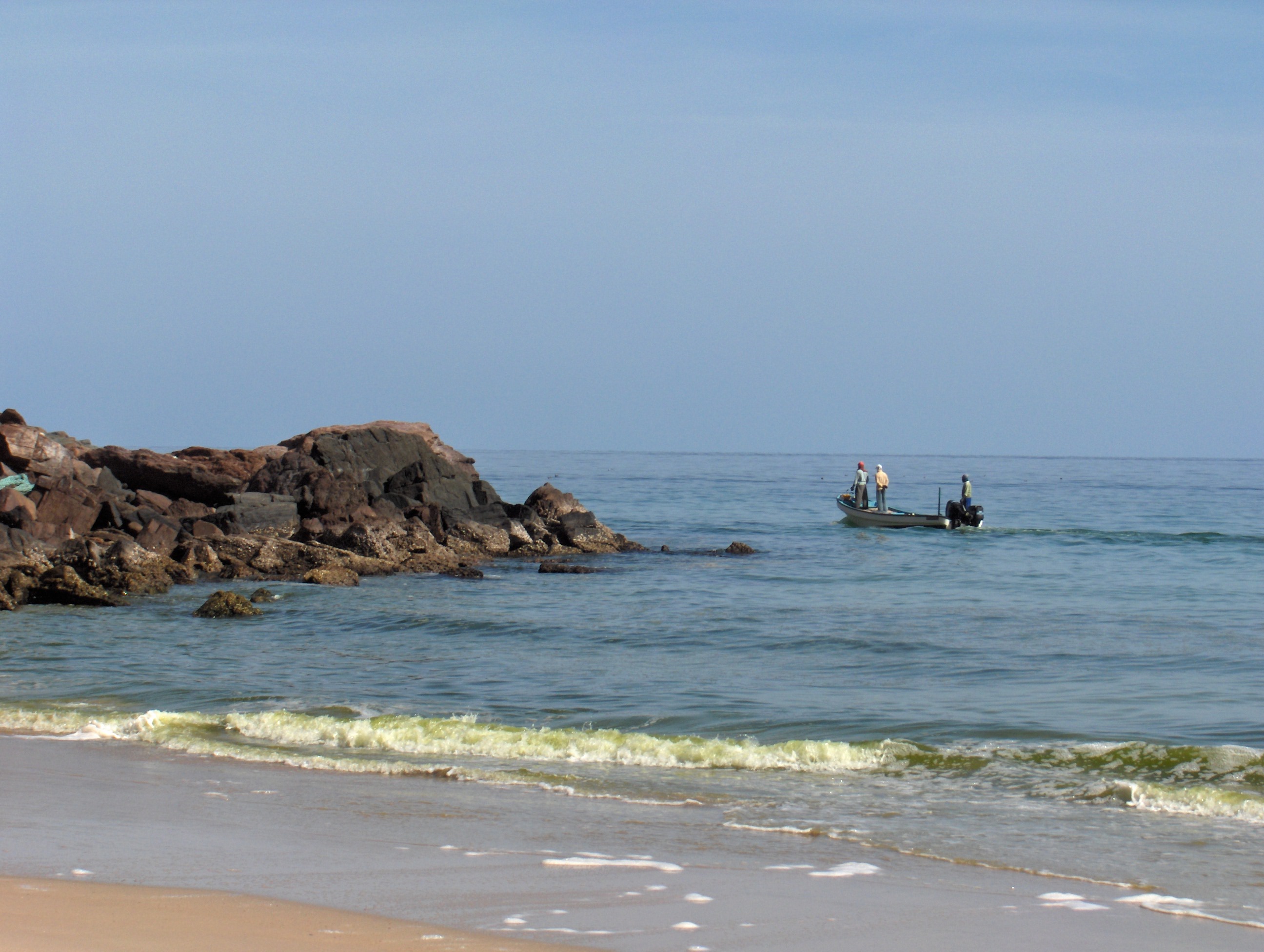
I’d cut my teeth on Arthur Ransome, consumed everything of Joseph Conrad’s down to the letters and the science fiction, and had recently read Outerbridge Reach, Robert Stone’s haunting riff on the fraudulent and peculiar voyage of Donald Crowhurst. But by the time I reached Muscat and the shores of the Arabian Sea my “simple sea adventure” had already fallen through several rabbit holes.
For a start, in the bar I was drinking in, the parrot by the door turned out to be a robot. It squawked at precise, thirty-second intervals. For another, the policeman I’d arranged to meet turned out to have spent his youth shooting up South Korean trawlers with an “A-Kay”. (Portly, friendly, a family man, he wanted me to know he was still on first-name terms with automatic weapons.) Around us, the walls were hung with photographs taken from old travel books. Graham Greene shading into Humphrey Bogart in The African Queen. Little boats. Little harbours. A lot of boats disgorging hemp sacks and balsa crates on to a lot of ramshackle quays. This was the moment I realised that Dead Water was not going to be a straight story.
Two thirds of the earth’s surface has been lost to us, stolen away by vast corporations, complex algorithms, robot cities, and ships as big as towns. Everything ends up in a box these days. According to my policeman friend, even the pirates are trapped. Their motherships, controlled from as far away as London, São Paulo and Toronto, are serviced by patrol boats. They never see land. The sea has become a kind of negative of itself: a trap, rather than an escape, a fusion of disappointment and terror.
The real sea rovers these days are the boxes. Shipping containers lead lives far more exotic, complex and glamorous than their human handlers do. Their stories are cryptic, of course: hidden in paper, buried among figures, turned to logic gates and light. What if we could unpick them?
Dead Water is a story of two worlds: the famished, desert world we are making for ourselves, and the cold, fluid world inhabited by the containers. Its circle of logic and chance embraces over a hundred years, most continents and one magnetic pole. At the centre of the circle sits the Indian Ocean, the most heavily travelled body of water on Earth. Holding this delicate structure together requires a master storyteller–so I made one up: a djinn assembled from victims of a railway accident. The djinn weaves through time and space, explaining itself through the stories it feeds upon. A magical narrator won’t be to everyone’s taste, but the world is bigger than one writer’s important opinions about it, and I like books that find a way to recognise the fact.
Most of the book’s crazier human twists are a matter of record. Dead Water contains (among other things), a coup, a polar expedition, a world war and a tsunami. These are the tips of the research iceberg–the things I absolutely could not omit.
The world of the containers needed different tools. There are several games and Easter eggs sewn through the book. Pay attention to the contents page, and if you have a smart-phone, try reading those QR Codes, too. Most are decorative, but a couple do matter. You’ll have to find out for yourself which they are. The idea was not to be clever for the sake of it, but to suggest that the non-living world of boxes, cranes and ships has its stories, too, its myths, and maybe–just maybe–its dreams.








